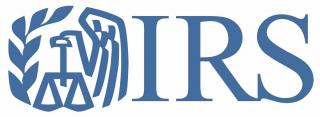The federal government, including Congress and the Internal Revenue Service, supports not only broad advocacy but also legislative lobbying by 501(c)(3) charitable nonprofits.
First Amendment, U.S. Constitution:
Congress shall make no law respecting … the right of the people peaceably to assemble and to petition the government for a redress of grievances.
In other words: the freedom of association and right to advocate on public policy, including legislative lobbying.
The U.S. Congress says it’s legal for nonprofits to lobby
- In 1934:
Congress enacted a statute allowing charitable nonprofits “organized and operated exclusively for religious, charitable … or educational purposes” to be exempt from federal income taxes, provided that, among other things, “no substantial part of the activities of” the nonprofit organization is for “carrying on propaganda, or otherwise attempting, to influence legislation….” 26 U.S.C. § 501(c)(3).
By setting a limit (no “substantial part”) rather than imposing an outright ban, Congress recognized the rights of nonprofits to do some lobbying. - In 1976:
Congress enacted statutes clarifying beyond all doubt that § 501(c)(3) charitable nonprofits may lobby, establishing generous limits, providing clear guidelines, and creating other benefits:
→ 26 U.S.C. § 501(h), which allows charitable nonprofits the option to elect to use the bright-line “expenditure” test rather than the vague “no substantial part of activities” test; and
→ 26 U.S.C. § 4911, which – just for those nonprofits electing to use the expenditure test by filing the easy form known as the “501(h) election” – sets generous dollar limits on the amounts those nonprofits can spend on lobbying (a sliding scale that starts with 20% of the nonprofit’s first $500,000 in expenditures), provides clear definitions, and exempts certain activities from consideration as “lobbying.” As the IRS grid below shows, very few charitable nonprofits will ever come close to hitting these limits.
| If the amount of exempt purpose expenditures is: | Lobbying nontaxable amount is: |
| ≤ $500,000 | 20% of the exempt purpose expenditures |
| >$500,00 but ≤ $1,000,000 | $100,000 plus 15% of the excess of exempt purpose expenditures over $500,000 |
| > $1,000,000 but ≤ $1,500,000 | $175,000 plus 10% of the excess of exempt purpose expenditures over $1,000,000 |
| >$1,500,000 | $225,000 plus 5% of the exempt purpose expenditures over $1,500,000 |
Source: IRS Website
The IRS says it’s legal for nonprofits to lobby

The IRS has material on its website reassuring nonprofits that legislative lobbying is legal. There are pages about legislative lobbying clearly state that charitable nonprofit “organizations may engage in some lobbying” and “involve themselves in issues of public policy without the activity being considered as lobbying.”
There is an IRS form – Form 5768 (which is free and less than a page long) – that nonprofits can file that gives them the opportunity to safely engage in lobbying activities as long as the money spent on lobbying (both grassroots and direct) falls under an established threshold. Read more about this process, referred to as filing the “501(h) election.”
Many nonprofits and their funders prefer to hear the words from the authority itself. To make it as plain as day, in 2000 the Center for Lobbying in the Public Interest asked the IRS to answer basic questions about charitable nonprofits engaging in legislative lobbying. The IRS, in its official response letter, provided lots of assurance, including:
Q: Is lobbying by section 501 (c)(3) organizations permissible under federal tax laws?
A: Yes (except for private foundations under most circumstances)
